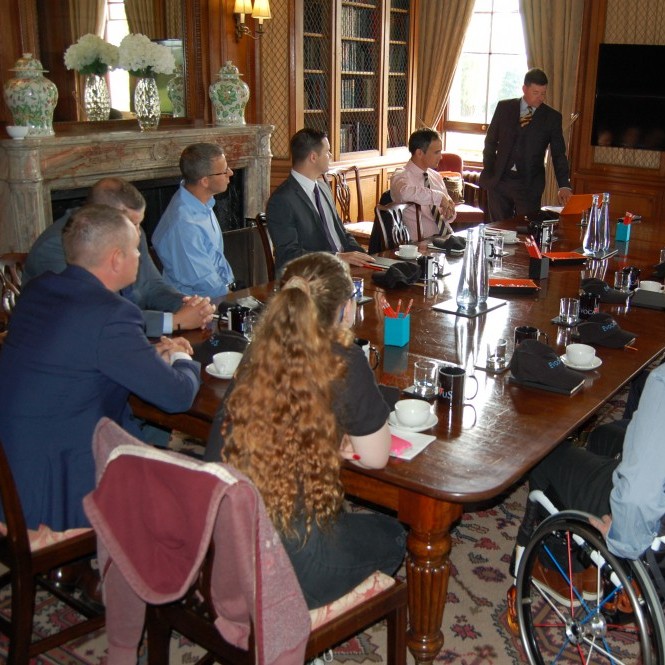 At Evocatus, we specialise in creating experiences which pull people in to scenarios on a visceral, emotional level. We create controlled stress, challenge assumptions and confound expectations, in order to help individuals and teams to plan, to understand situations and to develop.
At Evocatus, we specialise in creating experiences which pull people in to scenarios on a visceral, emotional level. We create controlled stress, challenge assumptions and confound expectations, in order to help individuals and teams to plan, to understand situations and to develop.
Although we are not a dedicated Team Building outfit, experience has shown us that games and exercises often provide a huge development opportunity for the leaders and teams involved; years of enabling training for military teams means that we are well-placed to ensure that this opportunity is maximised, alongside the primary focus of the exercise.
So, why does it work?
What do bespoke training games have to offer in terms of team development?
- Shared Understanding
Firstly, games and exercises build mutual, shared understanding. By applying a little pressure and putting all-important information in unexpected places, we can provide some insight into the characters on the team, seeing where the likely conflict and chemistry between individuals manifests, and where particular strengths and weaknesses lie. Members of the team whose jobs are only interesting to others when things go wrong have the opportunity to explain why plans are flawed before they go wrong, and everybody can get an insight into the organisation’s context, in terms of risks, strategy and the resulting plans to meet them.
- Expose weaknesses
By providing complex problems with detailed challenges, we can also encourage those wave-skimming visionaries (we’ve all met them) to pause and consider the detail, perhaps by gaming the “big hand, small map” plan to expose its weaknesses. We routinely set up our games to leave no room for bluff; knowing the scenario inside-out allows us to pick up on bluster and gently challenge it through some Red Teaming. We can also help to integrate new members into the team, either the most junior, or those finding their place as experienced operators, but in a new team.
- Leader development
Closely aligned are the benefits for leaders; we design our games in such a way that leaders cannot succeed simply through the application of personal talent and experience; to “win”, leaders will need to use the knowledge and skills of their whole team, including those who might not always be the first to step forward, whose alternative attitudes and viewpoints might be key to building the cognitive diversity required to come up with a solution that works. Developing leaders is, in our view, a key element of team development.
- Develop trust, respect & confidence
Of course, relationships run two ways, so not only do leaders learn how to motivate and manage the individuals in their team more effectively, but there is also an opportunity to develop trust, respect and confidence in those leaders, particularly if they have the confidence and humility to get stuck in and lead by example. By showing their willingness to learn and develop from the experience, leaders can create a very powerful culture of striving for excellence and innovation.
- Decision making
There are a number of collective skills which we can push people into during a training game; expecting people to make decisions and justify them, to build consensus for a course of action or to anticipate and plan against contingencies all sound like things organisations should be doing all the time, but they are difficult and often side-stepped. By forcing teams to practice these skills, we can prepare them for the next time they need them; and through shared experience, the team will often have a collective point of reference to fall back on.
We are standing by to support your organisation with strategy days, consent building and training games; Bath, Bristol and the South West are our home turf, but London, Cardiff and Edinburgh are all within easy reach!
